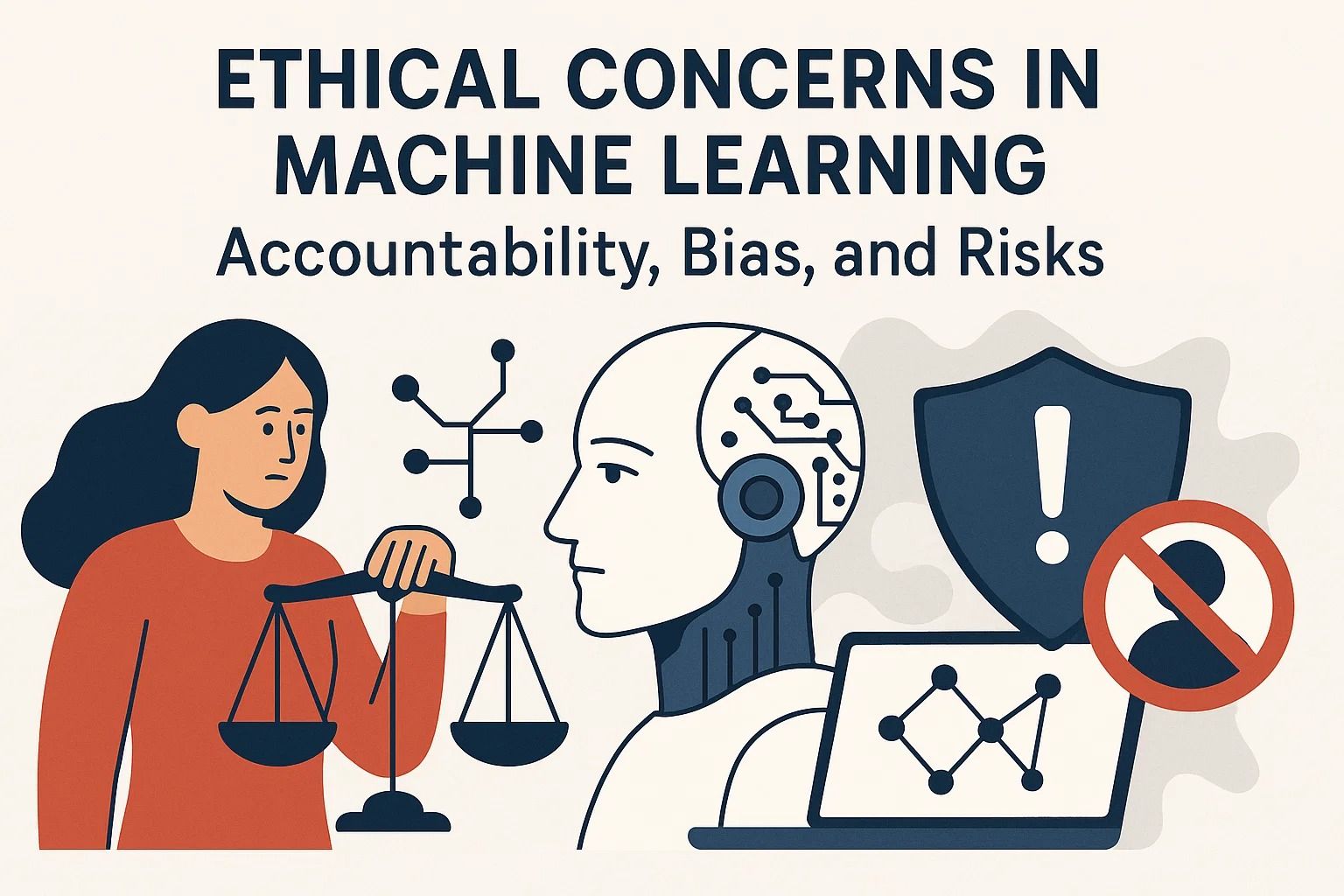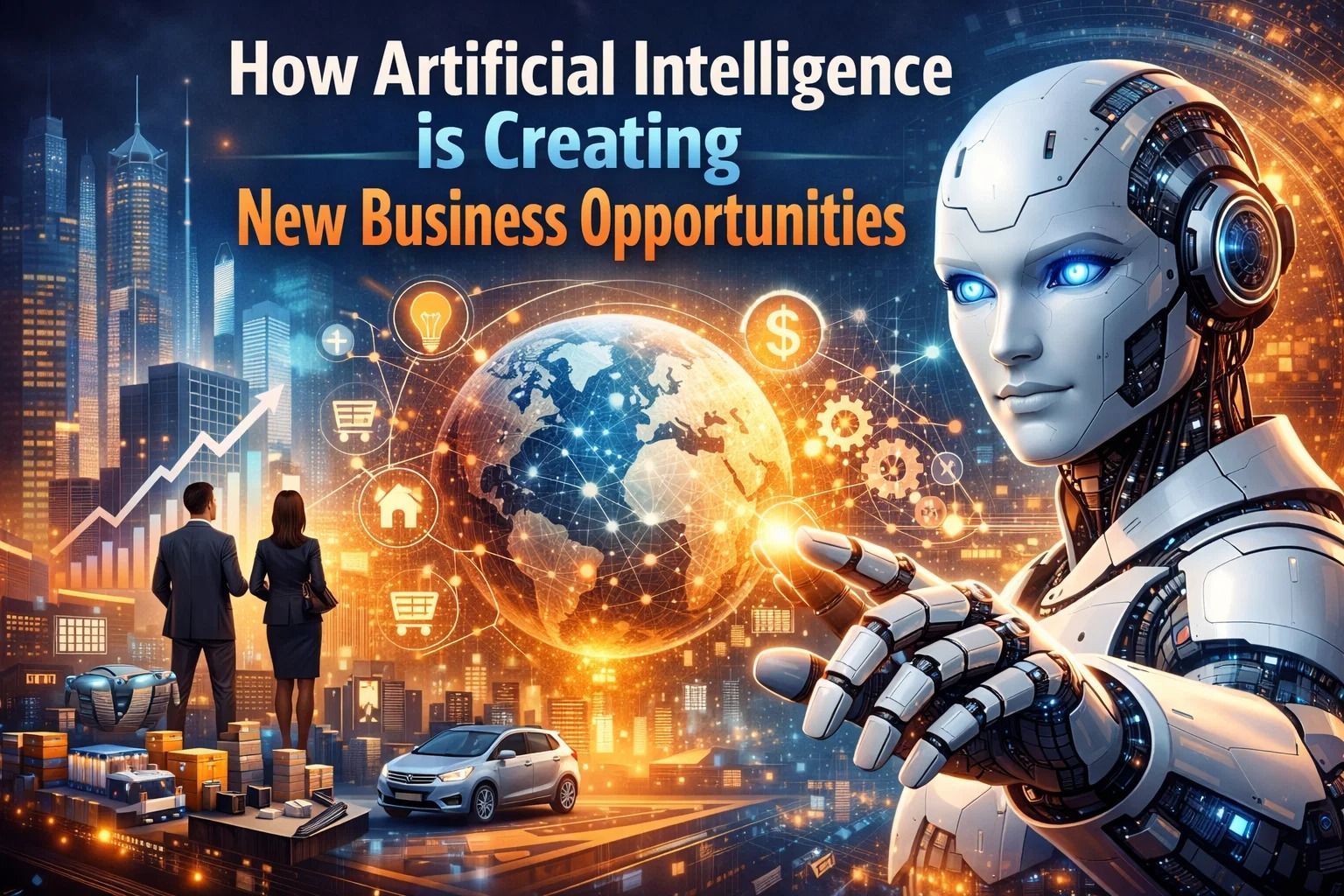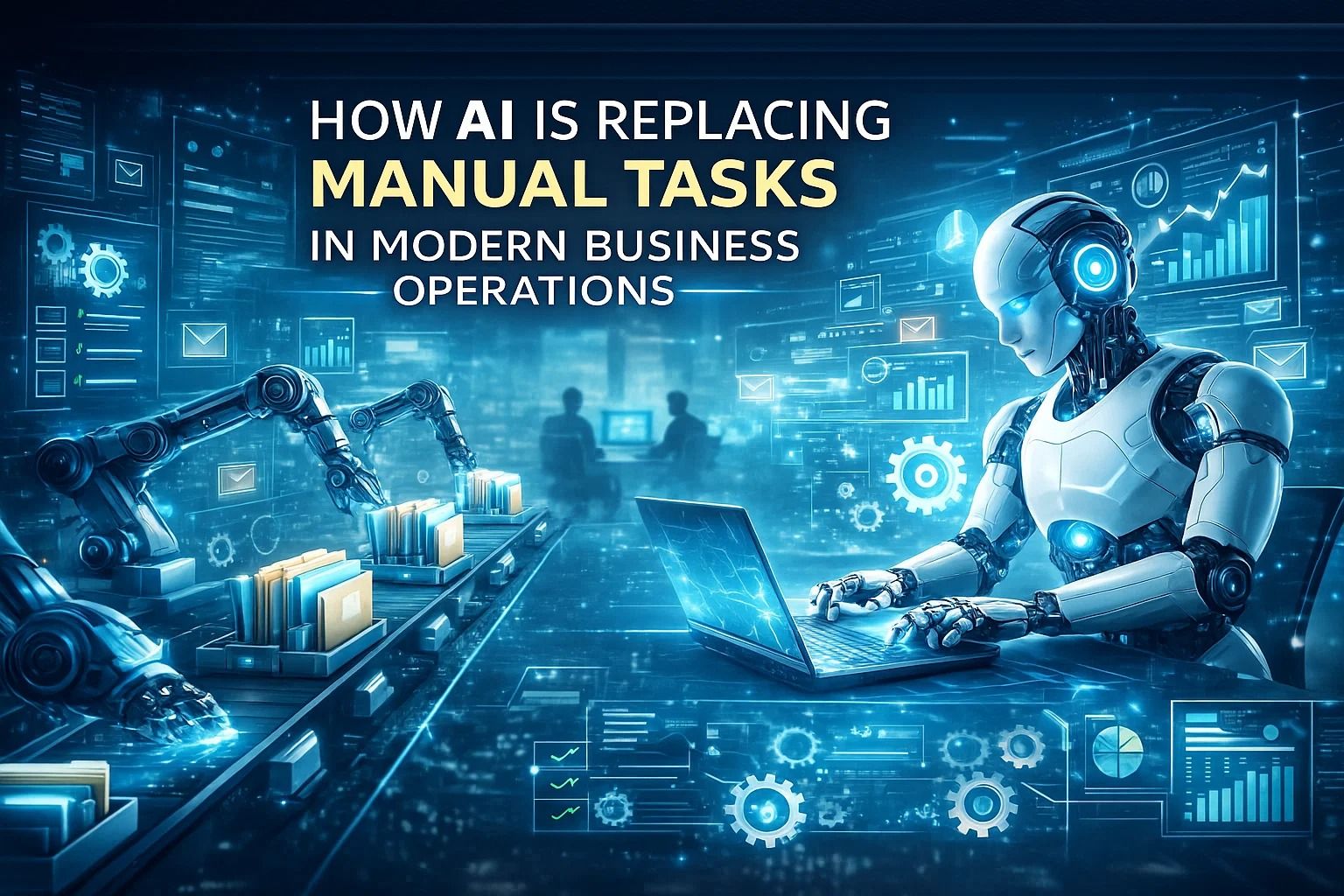
Ethical Concerns in Machine Learning: Accountability, Bias, and Risks
Gearing Up for Ethics in Machine Learning by 2025
As machine learning (ML) become more prevalent in our future society, the ethics of machine learning usage will incr implement and significance, growing more and more complex. From autonomous driving programs to online shopping recommendations, machine learning impacts virtually every aspect of society today. Navigating the ethics of these technologies is essential for ensuring innovation aligned with the basic humanity.
Bias in Training Data and Its Impact
The most critical ethical issue around machine learning is that of bias, especially when training data reflects a history of negative stereotypes, prejudicial social norms, incomplete information, or systematic imbalances. Biased data leads to biased algorithms, biased models, and biased results. For instance, facial recognition programs have been found to identify people with dark skin less accurately than people with light skin. These disparities have real-world impacts—especially where consequences can affect personal liberty (policing) or the entry of the workplace (hiring). These challenges lead to the need for data collection processes to be transparent, random, and representative. Developers should be queuing up for detection, mitigation, and explanation of bias in machine learning models. This is not only a matter of technical difficulty but one of ethics as well and demands intra-professional collaboration and regulation from outside stakeholders.
An Absence of Transparency and a Black Box
Yet another ethical dilemma in machine learning is the black-box nature of many machine learning models built today, most notably deep learning. These models can yield extremely accurate predictions, but their decision-making processes are opaque to the users and sometimes even the developers. This lack of interpretability makes it difficult to pinpoint mistakes, assign blame, and build user trust. In mission-critical applications such as health care diagnostics, criminal sentencing, or lending decisions, inaccessible reasons for incorrect outcomes can have life-changing consequences. If a machine denies your request for a mortgage or your doctor receives an entirely wrong diagnosis because of a computer, it's important to know why. Explainable AI provides a possible solution to this challenge, but the field of XAI is still in its infancy, and no universal solution yet exists.
Privacy and Surveillance Violation
Machine learning algorithms often demand large amounts of personal data to train effectively. That dependence puts consumer privacy and consent at enormous risk, leading to violations of user rights and the specter of unwanted surveillance. When AI models can extrapolate judgments—such as political opinions, sexual orientation, or health issues—from common social media postings, the consequences can be dire. Aggregation and use of such data without user knowledge can trigger ethical alarm bells inside the machine-learning community. State governments and corporations use machine-learning power to surveil more than ever before, and the danger here is that if left unchecked, these systems pose a severe risk even to democratic countries. The ethical requirement is that all users retain control over their data, and the ethical developers make privacy protection features a priority, such as differential privacy and federated learning.
Automation, Job Displacement, and Equality
Automation through machine learning is already beginning to shatter the fabric of the workforce landscape. While automation offers efficiency and can even create new directions in the global marketplace, it has an unsettled impact on the jobs of society, particularly in lower-skilled and more routine work. This challenge widens the chasm of economic inequality worldwide—one that is growing and is likely to expand over the next years. That alone brings up questions about our obligations to shape society in ways that provide for a good quality of life for the members of those societies. Do businesses that automate or "displace" workers have a responsibility to invest in retraining for affected employees? Do governments have a responsibility to provide a universal basic income, job training, infrastructural improvement programs, or wage support programs to compensate for automation? Weighing the pros and cons of automation isn't only a matter of money. It is a question of morality. Ethical development with machine learning should consider the social impact of automation and include strategies to reduce harm and increase social good.
Algorithmic Fairness and Social Responsibility
Fairness is not a one-size-fits-all philosophy. Different communities, cultures, and individuals have different views of what "fairness" means. But there is increasingly broad agreement that fairness principles must underlie algorithms. Fair machine learning means questions of equity, including disparate impact; equal opportunities; disparate treatment; and measurement, accountability, and transparency must concern developers from the earliest stages and throughout the design, testing, and launch of new technology. This requires meticulous audits of data, a variety of stakeholder involvement in all steps of the process, awareness of unintended consequences, and ultimately an understanding that algorithms must be equitable as well as effective. They must work for all human beings, not just the wealthy elite. Adapted from the Future of Life Institute ([www.futureoflife.org](http://www.futureoflife.org/)).
The Challenge of Accountability in Machine Learning Systems
One of the most urgent ethical debates surrounding machine learning (ML) revolves around accountability when algorithms inflict harm. Unlike classic software, ML models are not static but can change over time, making liability hard to trace. Was it the data scientist who designed the model, the firm that made the decision to deploy it, or the consumer who activated it? The absence of unambiguous accountability structures has dire repercussions, particularly in delicate sectors like finance, healthcare, and criminal justice. The uncertainty has fueled discussions on legal protections for “algorithmic accountability” that enshrine roles and liabilities. Some regions are considering laws that would require human supervision of high-risk AI. Such moves are a step forward in holding technological advancement to ethical and legal standards.
Informed Consent and Data Ethics
In many ML contexts, individuals do not realize their data is being gathered, analyzed, and used to improve algorithms. Where there are terms of service, they often take the form of lengthy, complex documents filled with legal jargon. As a result, individuals may consent without realizing it to practices they neither comprehend nor, if transparently described, would condone. Ethical data stewardship requires more than following the letter of the law. Developers should seek to create terms of service that are transparent, comprehensible, and genuinely voluntary, including giving users real options regarding how their data is used and the chance to opt out at no cost.
Deepfakes, Misinformation, and Manipulation
ML has made it possible to synthesize extremely lifelike media, including deepfakes (audio, images, or video that look and sound like real persons). These breakthroughs can have valid applications—for example, in video games or education—but they raise profound ethical problems. Deepfakes can be weaponized to sow disinformation, slander individuals, or sway public opinion. Reducing these dangers requires technical intervention and policies. On the technical side, watermarking and content authentication systems allow content to be authenticated and verified. On the policy side, governments and platforms must devise ways to recognize and curtail illegal usage without infringing on the right of free speech elsewhere.
The Ethics of Predictive Policing and Risk Scoring
ML is being adopted increasingly by law enforcement and judiciaries to anticipate criminal conduct or compute the risks of re-offense. These predictive tools evoke serious issues meaning justice and civil liberties. If these tools are developed using biased data (say, because some communities are overpoliced), they may intensify systemic prejudice instead of enhancing justice. Transparency and scrutiny are urgently needed in such situations. Public agencies should disclose the models behind predictive tools, including the data they are premised upon and how their forecasts are read. There should be routine audits of the tools, and the comments of the public should be welcomed, especially from communities that are likely to be the most vulnerable to negative impacts.
Global Disparities in ML Access and Governance
The ethical issues surrounding machine learning extend beyond the individual user or developer; they unfold on a global scale. Wealthy countries and tech giants often possess the finest ML tools available, while poorer nations have sparse access to the same array of technologies—let alone the assurance that they have frameworks for regulation. This fosters a tech divide that can deepen social disparities. Clearing up this mess requires unprecedented international collaboration to build ethical norms, disseminate useful ideas and best practices, and guarantee that machine learning's benefits are shared equitably. While PROMETH-Int'l, OECD, UNESCO, and the United Nations have begun formulating global principles on AI, applying them remains inconsistent.
Environmental Impact of Machine Learning Models
Training large-scale ML models can consume vast computational resources, which translates directly into resource use and virtually always contributes to heavy energy use. The appetite for greater numbers of efficient models seems insatiable, but so too is their carbon footprint. This is a paradox for the machine learning community that raises ethical dilemmas surrounding sustainability in ML. Developers and companies must be concerned about their models’ ecological imprint and work to lessen it via more efficient algorithms and hardware and/or renewable energy. Ethics in ML isn’t only about humans but also about the Earth.
Amplification of Biases and the Peril of Feedback Loops
One of the most pernicious issues in machine learning occurs with respect to the amplification of pre-existing biases present in society. For example, if training data contains traces of bias in the form of discriminatory hiring practices or racially imbalanced arrest records, the models learned can reinforce and even magnify those biases. These biases then enter a cycle of self-perpetuation as skewed predictions cascade into future decisions, which in turn produce new instances of biased data.
In order to prevent these outcomes, it is imperative for developers to conduct rigorous audits and assessments of bias. Techniques such as fairness constraints, data re-weighting, and adversarial debiasing are available to mitigate risks. Yet technical remediation by itself will not solve the problem; an organizational commitment to ethical development and deployment must accompany this effort.
Absence of Diversity in Machine Learning Development Teams
The ethics of machine learning are determined not only by code and data but also by the individuals who build the systems. Unfortunately, the technology sector is still plagued by a lack of diversity, especially in leadership positions. This lack of representation breeds blind spots, areas where harm may be overlooked or downplayed as unimportant due to the lack of impact on the dominant group. Developing diverse teams of people with various backgrounds and life experiences in order to identify ethical pitfalls and design inclusive systems is critical. Additionally, including ethicists, sociologists, and affected communities in the development process can lead to the building of socially responsible systems.
Transparency vs. Intellectual Property
Another ethical friction point happens at the intersection of calls for transparency in machine learning systems and the desire to protect corporate intellectual property. While black-box models can attain high levels of efficacy, they frequently lack interpretability—even for the model creators. This opacity breeds distrust, especially in sensitive applications such as health care, finance, and criminal justice.
Some advocates argue for 'explainability by design,' wherein transparency is baked into the model in advance. Others call for regulatory solutions, requiring certain categories of models to undergo third-party audits. Balancing corporate protection and the public interest will be an ongoing and complex process.
Automation, Job Loss, and Social Responsibility
As machine learning systems continue to demonstrate increased levels of capability, they are also beginning to automate tasks long since performed by humans. While this can lead to increases in productivity and reductions in costs, ethical dilemmas abound. Questions as to the responsibilities of socially-directed accountability for companies are raised, and issues regarding economic inequality and job loss as a direct result of machine learning become increasingly pressed.
Entire industries of work—ranging from the aspects of customer service to transportation to warehousing and logistics—are being transformed through automation. Companies that implement large-scale machine learning have a social responsibility to be mindful of the consequences of their technologies on people. Transition and reskilling programs, the redistribution of observed productivity gains, and collectively bargaining job protections are areas of potential mitigation and harm reduction. Chasing the profit motive while ignoring the social consequences is simply untenable.
The Road Ahead: Ethics and Regulations
Addressing the ethical issues of giants in machine learning will require a multi-layered approach. Industry self-regulation, ethical codes of conduct, academic research, and government regulation must work collaboratively. There are no single actors in this moral journey.
Organizations such as the IEEE, the EU AI Act, and the AI Ethics Guidelines set forth by the High-Level Expert group on Artificial Intelligence have begun laying the groundwork of principles and action items. Yet these guidelines will require continuous expansion as the technology rapidly evolves. The goal is not to stop the march of progress but to channel it into just, equitable, and responsible outcomes.

















